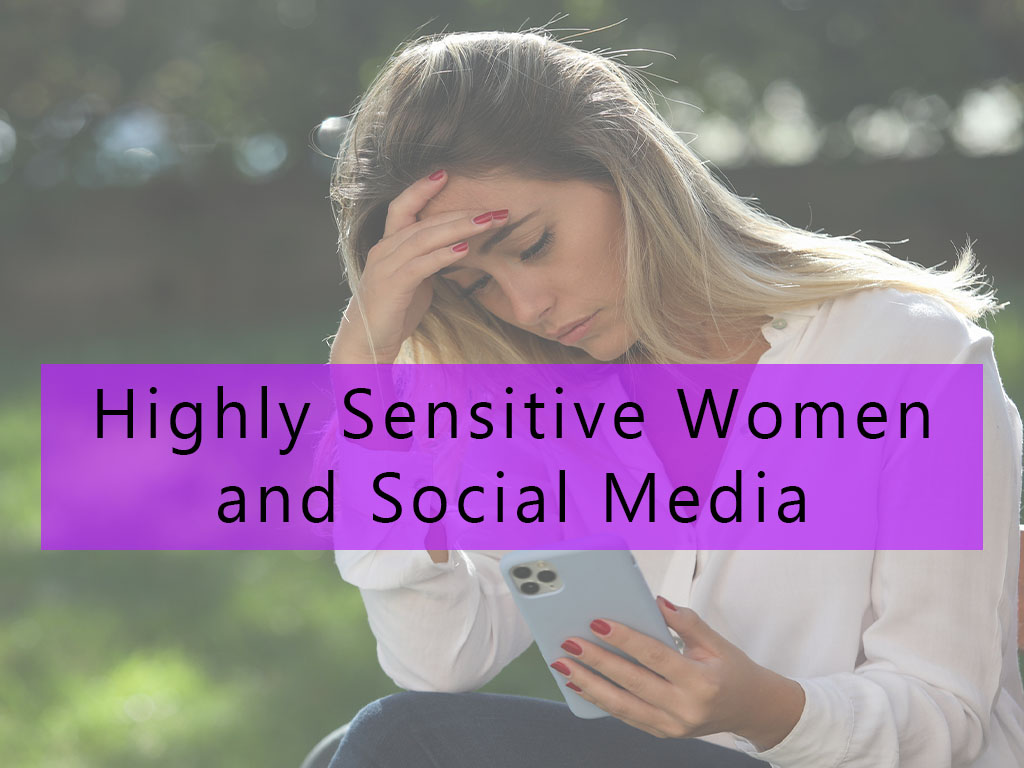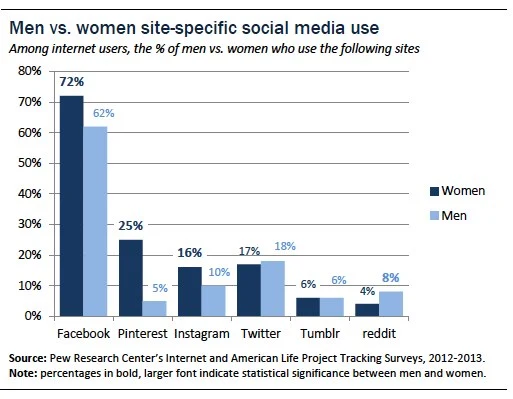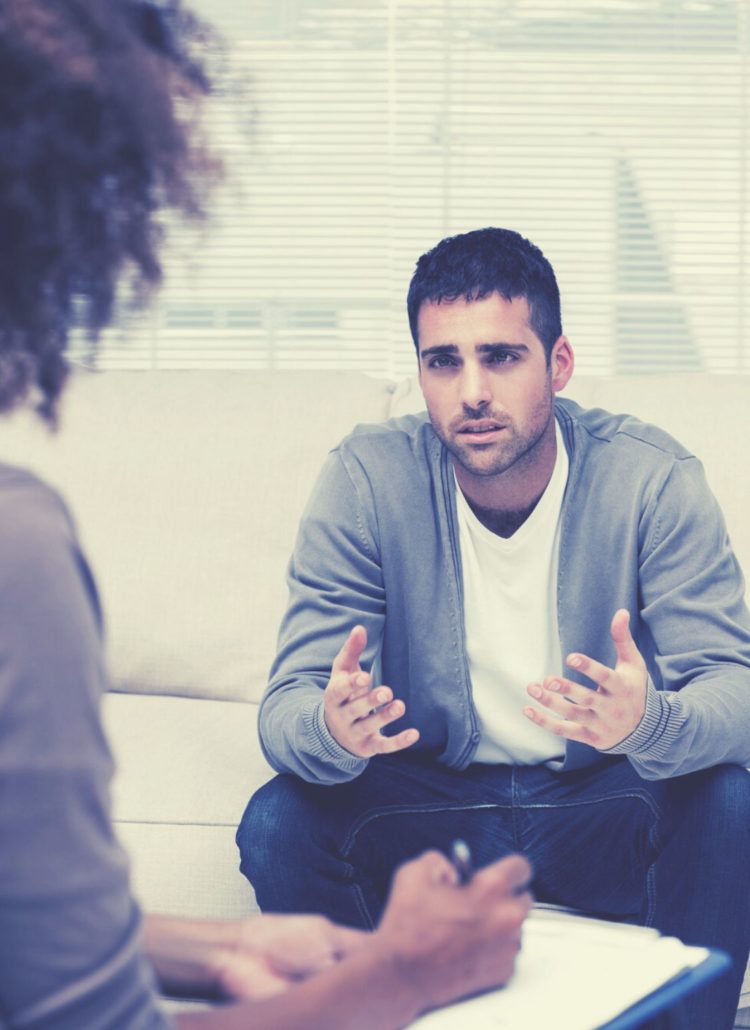As a highly sensitive woman, I’ve noticed that I don’t always love the ways social media affects me. I use many different social networks for my author business, yet I don’t love the way social media often triggers me. The bottom line is this: highly sensitive women will need to take some precautions to maintain their sense of self and be mindful of the frequency and amount of time they spend on social media daily.

Table of Contents
What influence does social media have on highly sensitive women?
In the early days of Facebook, I friended everyone in my address book. Suddenly, I was reunited with every long-lost high school mate–whether I wanted to be their Facebook friend or not. People I hadn’t given a second of thought to since graduating were now posting frequently. I wasn’t sure I needed to know what they were up to. Some I unfriended right away; others I maintained as Facebook friends because it was fun to peer into their lives and see what they had accomplished.
Facebook became the water cooler, the soap opera, and the mean girl gossip session all at once. I mean, how could I ever have lived without it? Not one to enjoy drama, I quickly realized that social media could be used just as much for evil as it could be used for good.
For every positive interaction with a caring friend, there were at least four or five negative postings: people complaining about politics, their children, their jobs, or their health. On the positive side, many friends posted cute pics of their dogs, kids, homes, vacations, and trips.
Cue comparisonitis.
Cue FOMO.
Cue mild depression.
Do women use social media more than men?
It’s no surprise that women, including highly sensitive women, use social media more than men. Our drive for connection and closeness with others for sure influences our use of social media.
“Historically, women have been especially avid users. Between December 2009 and December 2012, women were significantly more likely than men to use social networking sites in nine out of ten surveys we conducted.
Pew Research, It’s a woman’s (social media) world

So why do women enjoy social media more than men? And why do they have more problems with the aftereffects of social media making bad impressions on their emotional states?
One might guess that women often look to other women to compare how they are doing. Men do this as well, but we ladies are masters of the ‘compare and contrast.’ We notice the hair, the makeup, the ensemble, the career, the car, and many other details that frankly, some men don’t seem to notice.
When you add in the extra stimuli that highly sensitive women are prone to having difficulty with, it’s a recipe for disaster. Screens in and of themselves can often offer over-stimulation for highly sensitive people in general. Toss in how your neighbors, best friends, and friends from high school spent their spring break, and it’s normal to feel overwhelmed with all the inputs.
I remembered last year how triggering the first day of school Facebook/Instagram feed is for me. Cute chalkboards of well-coifed children smiling amicably into the camera and my ‘mom guilt’ kicks in like a charm causing me to feel less-than. So, this year I chose to ignore social media around the beginning of August. My sulky teens refused to take photos at 7:15 am and my firstborn was off to college. For me, I’ve decided to skip this annual ritual because it strangely makes me feel bad. I still take my own picture of my younger kids who allow me to take their photos, but I savor these photos apart from social media.
Is Instagram actually harmful to sensitive girls and women?
Last year, a whistleblower at Facebook leaked some pretty important information about how the social network targets women through Instagram and how the company knew this network in particular was damaging to women. This Forbes article became one of many that decried “enough.”
The article, Here’s How Instagram Harms Young Women According to Research, listed many ways that social media impacts girls and women negatively:
- Risk of eating disorders increased with social media use.
- Low self-esteem and depression were all associated with Instagram use.
- Mood was impacted by self-posting.
- Cosmetic surgery desires increased with the use of social media.
- “Likes” changed brain activity.
- Instagram increased one’s “Drive for thinness.”
- Body image was affected by photos that had been manipulated.
- Teen girls who are more aware of issues with social media were able to avoid eating disorders.
- The greatest risk is among those who compare themselves with others.
- Social media use was linked to suicidal thoughts.
- Loneliness and depression are reduced when social media use was reduced.
How do highly sensitive girls and women manage their social media use?
After reading these depressing research findings about social media, you might be wondering how to manage and limit social media use without throwing the baby out with the bathwater.
Here are four tips to help you manage your social media use as a highly sensitive woman (or parent to highly sensitive teen girls):
#1 – Pay attention to how you are feeling while on any given social network
Do you notice that you feel cranky while reading posts on Facebook, or happier when on Pinterest?
#2 – Don’t spend lots of time on social media when you’re tired
When you’re tired, your defenses are decreases. While you might have good guards up in place when you see that your neighbors went wine tasting without you if it’s late and you are tired, chances are this will affect you more.
#3 – Take a break from social media
Lots of people take regular breaks from social media. Some fast from social media as a form of spiritual discipline. Others take weekends off, or just one day a week. Others find that if they have to use social media for work, they enjoy it less for personal use.
#4 – Limit your time on social media
I find that limiting my time on social media is one of the best ways to keep the monster of jealousy and tendency to lean toward comparisonitis at bay is to limit my sessions on social media to 30 minutes or less. I also tend to check my Facebook group notifications first and interact with smaller groups more frequently. I rarely review the general feed for more than a few minutes at a time.
Be sensitive, be free
*This post contains affiliate links and I will be compensated if you make a purchase after clicking on my links*





[…] others’ needs above their own. This can make refusing requests uncomfortable. Additionally, women sometimes fear negative social consequences like being seen as “b****y” for asserting themselves. Proper boundary […]